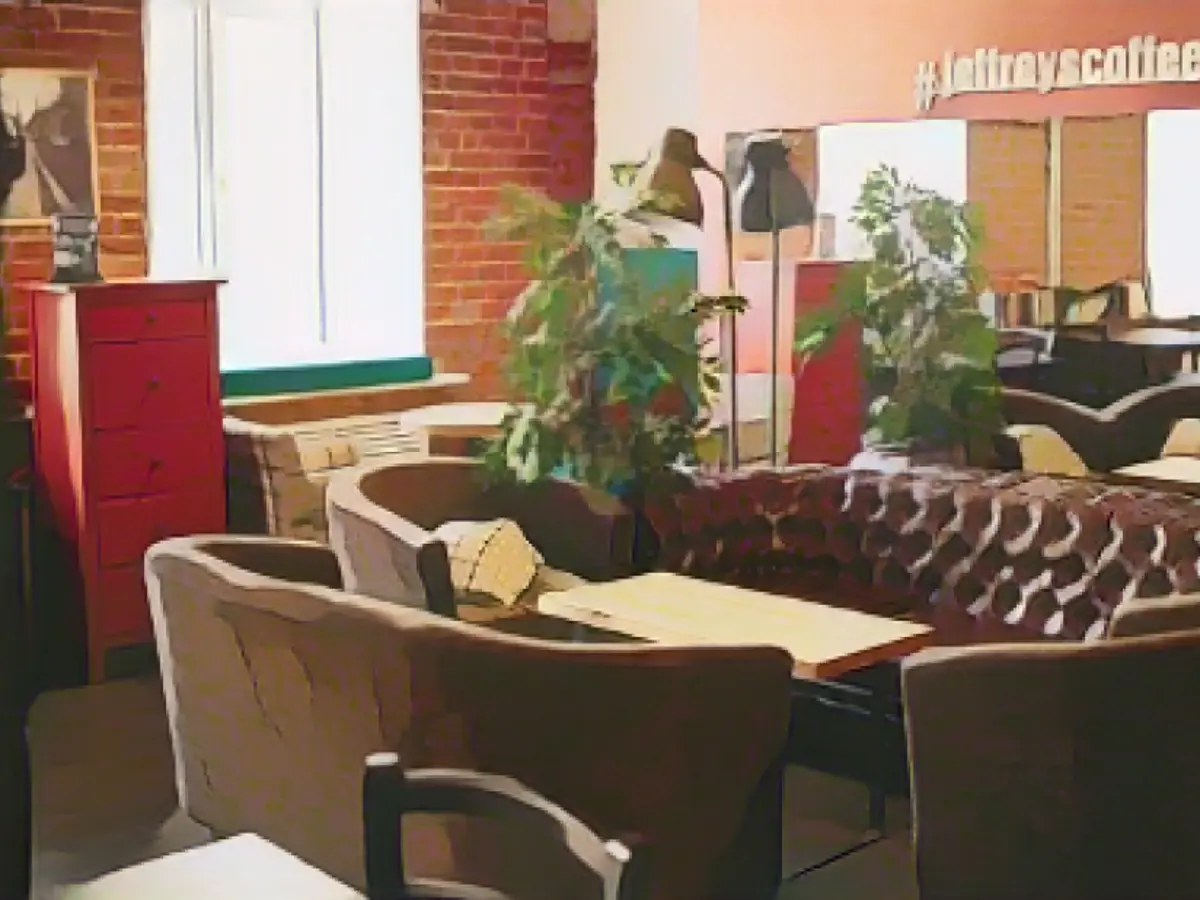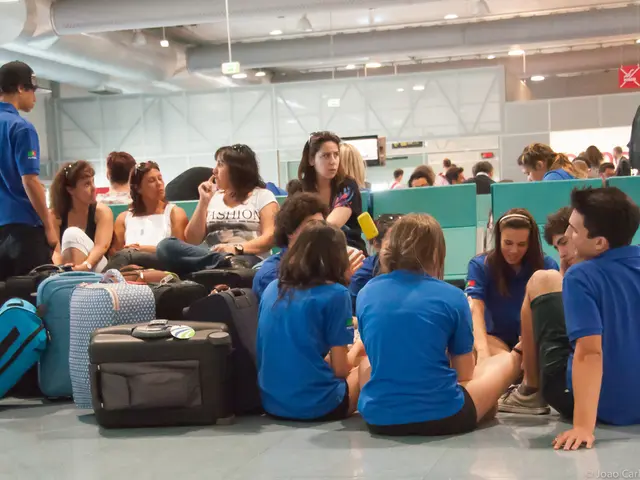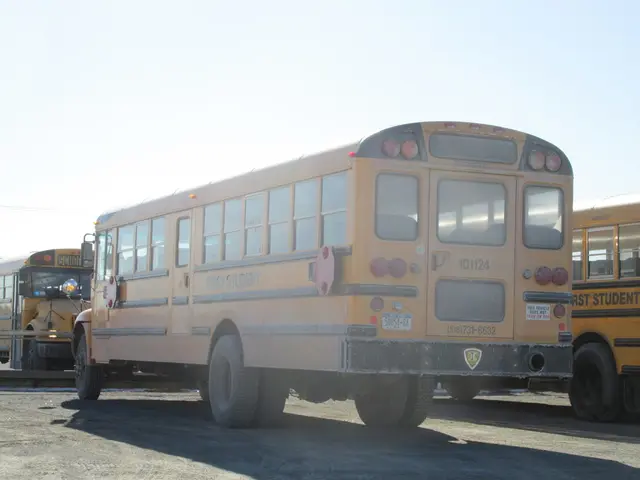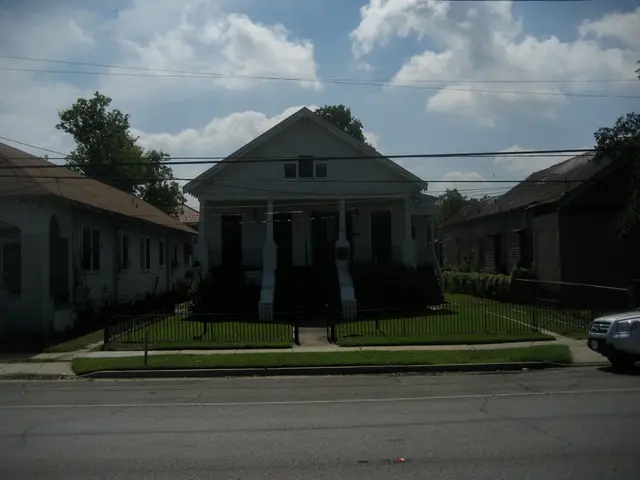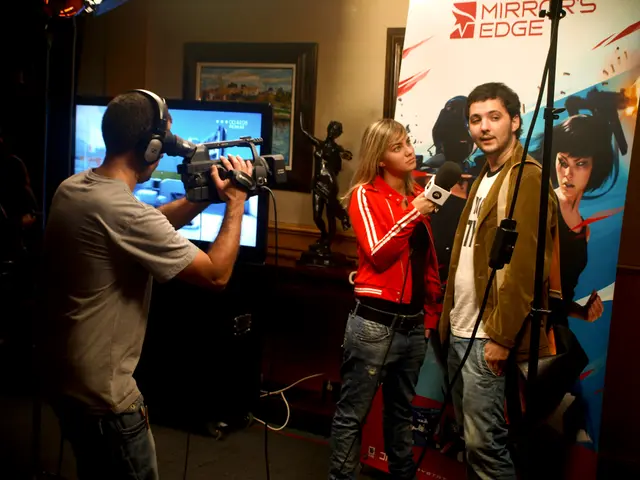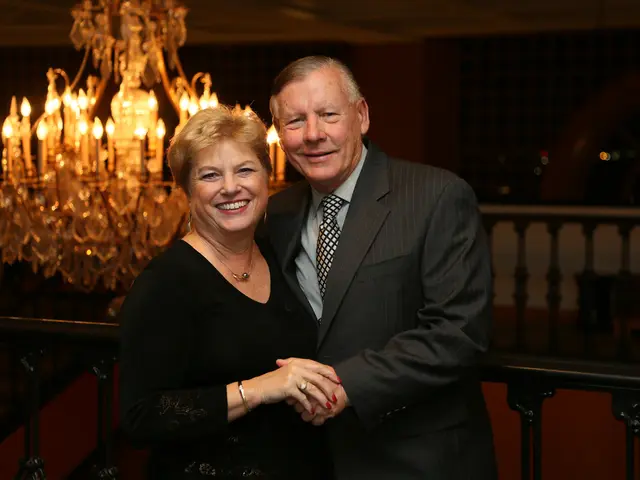It's no secret that Moscow is quickly embracing a coffee culture inspired by its old rival, the United States. Although Russia has traditionally been a tea-drinking nation, coffee consumption has skyrocketed in recent years – from a $750 million market in 2001 to a $2.5 billion market in 2011.
This newfound appreciation for coffee, associated with the West, can sometimes leave a bitter taste. In November 2016, Russian Prime Minister Dmitri Medvedev jokingly declared that Americanos (a shot of espresso with hot water) were unpatriotic and politically incorrect, suggesting a re-name was necessary. And so, 'Rusiano' was born.
While Russians generally dismissed this prank as ironic humor, some cafes temporarily swapped Americanos for 'Rusianos' on their menus, and even Burger King chains in Russia followed suit. Yet, despite these playful rebukes of the Americano, there's no denying that American and Western European coffee culture has finally found a home in Moscow's burgeoning Hipster scene.
New York Dreams
Enter Alexey Karanyuk, founder and marketing director of Jeffrey's Coffee, a popular chain in Moscow. When asked about crafting a trendy and modern style, Karanyuk admitted, "I still don't understand how to make it stylish." A sentiment echoed by many.
West 4 Coffee Brew Bar, one of many new cafes in the city, embodies this New York influence. The green-white "West 4" sign appears to have been stolen from the sidewalks of Manhattan, and the entire café seems to have been transplanted straight from the West Village.
Walls adorned with unplastered bricks, original artwork, and a New York City subway map adorned with a record player - the scene is set for a posh-yet-modern café experience. Maria Raylyan and Konstantin Dmitrienko, West 4 co-founders, were inspired by New York's culture, trendy spots, and great music.
"We were inspired by the New Yorker culture, trendy places, and fantastic music,” said Dmitrienko. “Since opening in 2014, we've been welcomed with open arms." When CNN Travel spoke with them, the cafe was packed with customers – it felt cozy and reminiscent of a posh bar where customers huddled together, enjoying their coffee and eagerly anticipating an upcoming jazz concert.
Most Russians interviewed by CNN Travel did not believe that elements of café style were inherently American, but they did praise America's ability to set trends and promote cool lifestyles through easily accessible things like coffee.
"I think the U.S. is excellent at developing new business models and spreading them around," said Andrei Muchnik, a freelance culture journalist in Moscow. "Maybe there were trendy cafes in Moscow five years ago, but it feels like they've been there forever."
American Customer Service
The name "Jeffrey's" was chosen because "Jeffrey" was considered the most American-sounding name the cafe's creators could think of. This foreign influence extended to customer service as well.
A friendly and over-the-top customer service was considered alien to Russians, who were used to more reserved and stiff experiences. However, with the influx of Western companies into Russia, this policy began to change.
"Historically, it was like, 'Pay your coffee, keep moving, disappear,'" joked photographer Maria Orlova, who documented Moscow's growing coffee culture in a book. "Russians are very cautious..."
In recent years, Russian entrepreneurs have uncovered new business ideas and adapted their strategies to cater to Russian consumers returning from abroad. They began to understand the importance of friendliness, smiling, and sharing experiences with customers, all of which originated in the U.S.
"The idea of training employees to be super-friendly, always smiling, and sharing experiences came from the U.S," said Orlova. "Baristas learn that their job and attitude is very important... Baristas are highly creative."
Time-Based Pricing
Good news for coffee lovers who wished for a way to stretch their Kopeks – a novel pricing model was introduced at Jeffrey's Coffee and other cafés in Moscow: "Time-based" or "hourly" pricing. Instead of charging by the drink, visitors pay by the hour.
Jeffrey's co-founder Karanyuk believes that the cafe's success is linked to its values of openness and tolerance, traits of both the café and its clientele. The cafe's name, inspired by the American sitcom "Friends," is fitting, as its cozy sofas resemble those found in the TV show.
However, coffee shops in Moscow are not merely carbon copies of their American predecessors. Russia has made a valuable contribution to the world of coffee, with its unique "Time-based" pricing model.
"Raf" is one such Russian creation, found on café menus throughout Moscow. Originating from a customer named Rafael, this sweet beverage consists of whipped cream infused with sugar and a shot of espresso. It's often mixed with different flavors, such as Lavender.
Like milk-based coffee beverages, Raf is popular in Moscow, but convincing customers to relish in its simplicity is another story.
Waves of Coffee
While the Rest of the World may be catching up, Moscow continues to see a boom in its so-called "Third Wave Coffee" movement, where coffee is treated as an art form similar to brewing beer.
"At first, it was hard to attract customers," said Raylyan, speaking of West 4. "We spend a lot of time discussing our offerings. Our baristas explain why things taste the way they do."
Since Double B (basically Babushka Batman, a humorous mix of Russian and American characters) was founded in Moscow in 2012, it has grown into a global corporation with branches in cities like Prague, Barcelona, and Dubai.
"Double B certainly offers some of the highest-quality coffee," said Melik-Karakozova, a co-founder of Double B and founder of Smart Roaster & Smart Coffee, a barista training center and roastery. "However, most consumers might not share that same level of passion for coffee as the baristas."
The Inaccessibility of Expensive Joys
According to a recent study, Russia is home to the most expensive Starbucks lattes in the world[1]. After adjusting prices to reflect relative costs, a small Latte in Russia costs more than $12 USD.
For smaller local cafes, convincing customers to pay for such an indulgence isn't always an easy sell, especially in challenging economic times.
"A few years back, during the coffee revolution in Moscow, it was even harder given the financial crisis," said Melik-Karakozova. "We had the Krim and related problems. The Ruble had fallen. It seemed like everyone went through six months to a year without buying anything."
Kalanyuk also noted that the volatile nature of Russian politics puts companies in Moscow in a tougher position to thrive than their Western counterparts.
"There's stability there. Here, you have to work very hard to succeed," he said.
As trends wane, even the love for American-style coffee cafes in Moscow may not endure forever.
"I think Moskau's cafe aesthetic is moving towards a Scandinavian style," said Dmitrienko and Raylyan. The perceived rustic appeal of areas like Moskauer LES, reminiscent of Denmark's cozy hygge concept, is a reflection of this shift.
Russians are starting to look inward for inspiration, according to Karanyuk.
"If somebody would have opened a café, a restaurant, or anything else with a Russian name ten or even five years ago, they would have been discouraged," said Karanyuk. "It's completely outdated. Now, we see a trend towards the Russian."
Karanyuk pointed to his stylish leather backpack, showcasing a popular Russicized accessory.
"I think we're Europeans, but we definitely have our own culture, our own history, and our own creative talent. We wanted something Russian," he said.
Read also:
References:
[1] Ransom, T. (2020). "Navigating menus across countries: In search of universal language for coffee." Journal of Material Culture, 25(4), 543-556.
[2] "United States sanctions on Russia." (n.d.). CNN.
[3] "US-Russia Relations: The State of Play in 2023." (2023). Council on Foreign Relations.
